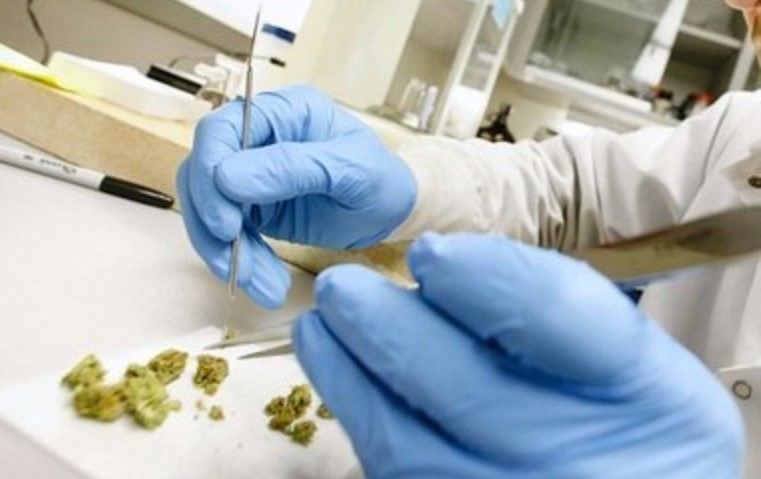Florida’s $250 million medical marijuana market is poised to swing its doors open to new companies next year after two judicial rulings in recent months that could reshape the competitive landscape.
More competitors would be a change for the Sunshine State’s large MMJ market, which currently is dominated by about a half-dozen vertically integrated operators.
To what extent the market opens up depends on a few factors:
- In August, a Florida judge struck down as unconstitutional what he viewed as an arbitrary restriction on the number of MMJ business licenses; the state has appealed. A 2017 law implementing the program called for 10 new licenses, then four additional licenses for every 100,000 patients.
- The judge also said the requirement that Florida’s MMJ businesses be vertically integrated was flawed – a development that would further open the door to more companies and greater competition.
- In May, another Florida judge ruled that the Legislature’s ban on smokable flower was unconstitutional. The state also appealed that decision.
Edibles products would give sales an added boost.
Depending on how these variables play out, “you could have a completely different landscape,” said Matthew Ginder, a cannabis attorney at Greenspoon Marder in Boca Raton.
Red-hot market
Despite the current legal confusion, Florida’s MMJ market has been growing at a gallop:
- The number of active patients has nearly tripled, from 56,537 as of Dec. 1, 2017, to 159,107 as of Dec. 7, 2018.
- The number of dispensaries has risen from 24 to 78 in the past year.
- MMJ sales via dispensaries are expected to total $200 million-$300 million in 2018, according to projections in the Marijuana Business Factbook 2018, up considerably from an estimated $20 million-$40 million in 2017.
The licensing cap situation is the most critical issue from a business perspective.
Florida has approved only 14 MMJ licenses, making them a hot commodity.
In recent months, licenses have commanded $50 million or more when resold to a new business.
Currently, seven businesses dominate the market: Trulieve, Surterra Wellness, Curaleaf, Knox Medical, Liberty Health Sciences, Vidacann and AltMed Florida.
For existing operators, the market has been “very lucrative, very enticing,” said Rolando Vazquez, a Miami cannabis consultant.
License cap nixed
The legal wrangling came to a head in early August.
That’s when Leon County Circuit Judge Charles Dodson ruled that Florida’s license cap violated the 2016 voter-approved initiative, which was a constitutional amendment.
The ruling could potentially lift both the cap and the requirement that operators must be vertically integrated.
Naturally, existing vertically integrated operators are “very upset” and will be “putting up a big fight,” Vazquez predicted.
Outgoing Florida Gov. Rick Scott, a Republican, appealed Dodson’s ruling.
But the administration of Ron DeSantis, the Republican governor-elect, has indicated it might drop the appeal.
Vazquez said people are trying to figure out what that could mean, “but it seems to be a more open market.”
If the appeal is dropped, Jeffrey Sharkey, executive director of the Medical Marijuana Business Association of Florida, said the new administration and the Legislature will have to address the constitutionality of license caps.
He believes the administration and Legislature will do so by opening the market to new companies in a measured way.
“Policymakers don’t want the market to be wide open,” Sharkey said. “It’s too hard to manage, to regulate.”
One wild card: Florida is getting a new agriculture commissioner, Nikki Fried, a longtime medical marijuana advocate.
“I see her having a very loud and clear voice” in promoting a less restrictive MMJ market and better patient access, Sharkey noted.
Licensing stalled
In the meantime, Florida has been experiencing licensing gridlock, with efforts to issue additional licenses frozen by litigation.
Sharkey said the association ideally would like to see about 30 vertically integrated operators in the state with no cap on the number of dispensaries they could open.
He added that a large number of dispensaries is necessary because of Florida’s geographic spread: Pensacola is almost as far away from Miami as it is from Chicago.
Sharkey said he would like to see the licenses phased in over time, predicting that Florida could eventually have 800,000 to 1 million patients.
Both Sharkey and Vazquez said businesses that applied for the additional licenses that now are frozen also are frustrated.
“A lot of licensees that were interested have been waiting for a year and are burning through resources,” Sharkey said.
Vazquez said he has a couple of clients who put a “half-million, million dollars” into applications for a licensing round that may never be completed.
Removing smokable ban could lift market
In 2017, the Florida Legislature enacted the current ban on smokable MMJ.
Leon County Circuit Court Judge Karen Gievers ruled in May 2018 the provision was unconstitutional.
But the state appealed, and Florida’s 1st District Court of Appeals ruled the ban remain in effect pending the final outcome of that appeal.
The 1st District has scheduled oral arguments in front of a three-judge panel for Jan. 8, 2019, the same day as the governor’s inauguration.
If smokable products are allowed, that would provide a big boost to MMJ sales.
Even if the ban isn’t lifted by the appellate court, “it’s only a matter of time” before it will be, Vazquez predicted.
In addition, edibles aren’t yet being sold because regulators have yet to finalize regulations.
Still, companies already are preparing: Trulieve, which has 22 dispensaries statewide, announced in September it had partnered with chocolate edibles maker Bhang.
Jeff Smith can be reached at jeffs@mjbizdaily.com





